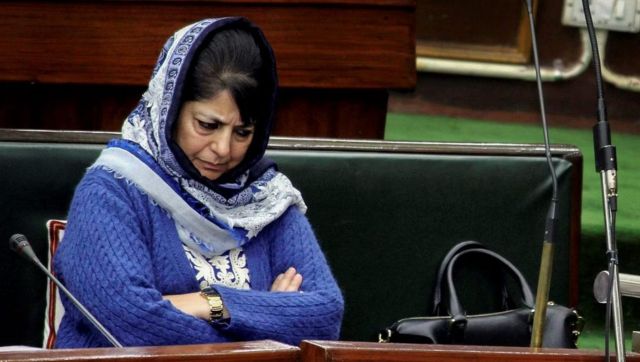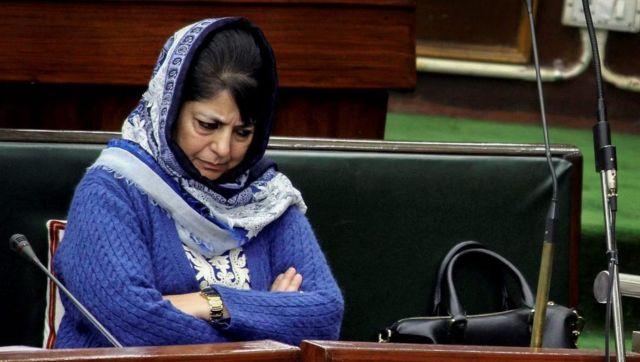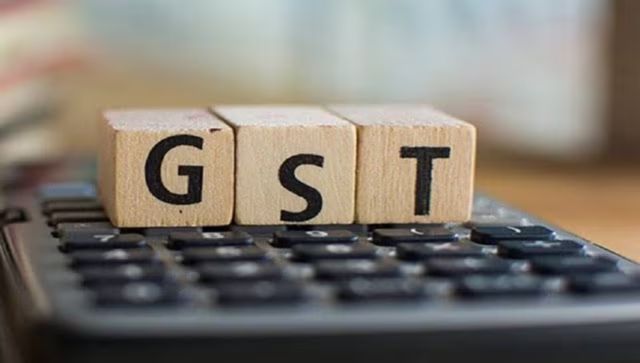Srinagar: The ruling BJP and PDP are at loggerheads in Jammu & Kashmir over the implementation of the Goods and Services Tax (GST) in the state with the former contending that constitutional amendment 101 to enforce GST can be extended in the state through a cabinet order while the ally is pressing for evolving a consensus and taking on board Opposition parties on the issue as well.
Although both the the parties are in agreement that the GST should be rolled out in the state, the BJP has held that this could have been done without seeking the concurrence of the state legislature.
The difference between the ruling allies come even as the National Conference and Congress – the key opposition parties in the state – have been opposing the implementation of the indirect tax reform as they feel it will erode the autonomy of the state.
The GST aims to make India a single market, eliminating the many barriers at the state borders and subsuming various state and central levies. Under the GST Bill there are three levies - the Central Goods and Services Tax (CGST) rate, the State Goods and Service Tax (SGST) and the Integrated Goods and Service Tax (IGST). The tax rate is determined by the GST Council.
“The Central Sales tax was already under force in Jammu and Kashmir and it would be replaced by the IGST,” said a senior government official.
The bone of contention in the state is the constitutional amendment 101. This amendment gives Parliament “exclusive power to make laws with respect to goods and services tax where the supply of goods, or of services, or both takes place in the course of inter-state trade or commerce.”
Also as per the Article 269A(1) of the Constitution of India, GST on supplies in the course of inter-state trade or commerce shall be levied and collected by the central government and such tax shall be apportioned between the Union and the States in the manner as may be provided by Parliament by law on the recommendations of the GST Council, the body that decides the rate and other contentious issues related to the reform.
The NC, meanwhile, has claimed that Chief Minister Mehbooba Mufti has agreed to their demand that a broader consensus needs to be evolved over the GST. In view of the differences between the political parties, the Bussiness Advisory Committee (BAC) of the state legislature is slated to meet an hour before the special Assembly session, scheduled for 17 June as of now.
Apprehending protests by the NC and Congress in the Assembly over the issue, the BJP has said that there was no need for the Legislative Assembly to discuss the constitutional amendment 101 that extends the GST Council jurisdiction to the state and it only needs to ratify the State Goods and Services Tax (SGST) bill for which the government has numbers.
“The concurrence of the government is required for extending the constitutional amendment 101 to the state which can be done by the state cabinet. The Assembly has no role in it. After the cabinet concurrence, a Presidential order can be issued to extend the GST to the state,” said BJP chief spokesman Sunil Sethi.
The threat of the Opposition parties to start an agitation over the issue and the PDP’s attempt to appease its vote bank have put a question mark over the implementation of the GST in the state.
If the tax is not rolled out in the state, it would mean the people of the state would have pay double tax and wouldn’t get the benefit of the input tax credit.
State finance minister Haseeb Drabu is rooting for the extension of the GST to the state. According to him, the constitutional amendment 101 doesn’t apply to the state and the special assembly session will take a final call over the issue. He has also warned that if the GST is not implemented in the state, businesses will become unprofitable in the state and people would have to pay both the state and the central taxes. PDP is apprehensive that the Opposition parties may boycott the Assembly and in view of threat of protests by the business community, it will have to take the blame.
State Congress Vice-President GN Monga has said the state shall have its own GST Council and it shouldn’t become subservient to the tax rate which was determined for the entire country.
Nasir Aslam Wani, NC provincial president, Kashmir, said the CM has assured that the GST Assembly session would be deferred as it has serious ramifications on the autonomy of the state. He said the state has a special status and imposes its own service tax. Under the General Sales Tax Act of the state, the state has notified many services as deemed goods.
However the BJP’s Sunil Sethi concurs the state is represented at the Council by state finance minister Haseeb Drabu, who can put forth his views.
Wani, though, fears that the state minister will become a “rubber stamp” as the BJP ruled states will have majority say in terms of the voting strength in the council.
As per the constitutional amendment 101 the vote of the Central Government shall have a “weightage of one-third of the total votes cast, and the votes of all the state governments taken together shall have a weightage of two-thirds of the total votes cast in a meeting.”


)




)
)
)
)
)
)
)
)